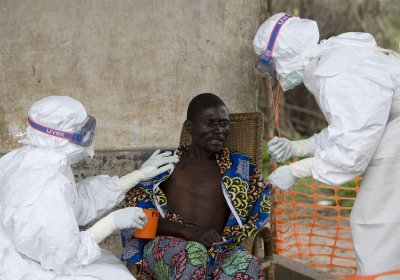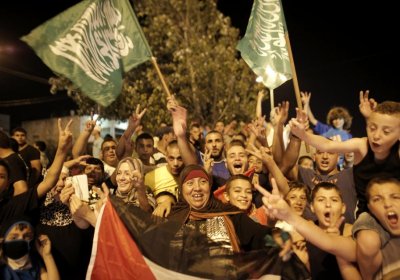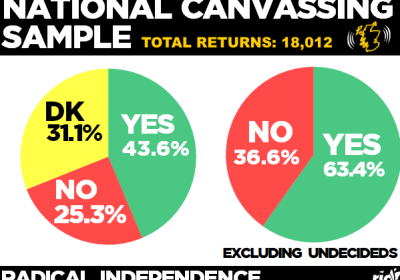Ecuador's pro-US neoliberal president Lucio Gutierrez was ousted in 2005. Since then, relations between Ecuador and the United States have deteriorated, with the Andean nation’s increasing rejection of US hegemony.
The government of Rafael Correa, first elected in 2006, has broken from the neoliberal doctrines Washington has imposed on Latin America. It has embraced regional integration, moving closer to its neighbours and further away from the US.
Diplomatic cables published by WikiLeaks show how hard the US fought to control Ecuador's future post-Gutierrez.
World
Activities were held across South Africa on August 16 to mark the second anniversary of the Marikana massacre, in which 34 striking mineworkers were slain by state security forces.
The killings occurred one week into a strike over pay by several thousand rock drill operators at the Lonmin-operated platinum mine in Marikana.
Despite the massacre, workers remained on strike. One month later, they won a settlement that met a large part of their pay claim.
Thousands marched in Staten Island, New York City, on August 23 to protest against the police murder of an unarmed Black man, Eric Garner, in July.
The action was led by Reverend Al Sharpton, who has been outspoken against police brutality since the killing.
The marchers were inspired by the mass protests in Ferguson, Missouri, against the murder of unarmed Black teenager Michael Brown by police. They took up the chant of the Ferguson protesters ― “Hands Up! Don’t Shoot!”
As the deadly disease Ebola spreads throughout West Africa, some in the West have been engaging in fear-mongering and racism. Others are seeing this deadly outbreak as a golden chance to profit off desperation.
But the high death toll is caused by the intersection of Ebola and poverty.
Ebola is a hemorrhagic fever with symptoms that include headache, vomiting and diarrhoea, as well as the signature symptoms of internal and external bleeding. It is caused by a virus that is spread through contact with fluids such as saliva, urine, blood and semen.
Palestinians in Gaza took to the streets on August 26 in celebration. After 51 days of merciless bombardment by the Israeli military, an open-ended ceasefire between Palestinian resistance groups and Israel was announced that appears likely to last for at least the immediate future.
During the assault, homes, hospitals, shops, agricultural infrastructure and schools were pulverised. About 2100 Gazans were killed. An estimated 80% of these were civilians, including more than 500 children.
Palestinian officials have recognised that Latin American countries were the first to condemn the Israeli onslaught against Gaza.
The Palestinian National Council (PNC), the legislative body of the Palestine Liberation Organisation, thanked Latin America on August 27 for its solidarity with the people of Gaza and its condemnation of the seven-week Israeli massacre in the enclave.
During a PNC meeting, the Palestinian leaders said the solidarity of Latin America with Palestinians “is an inheritance of patriots like Jose Marti and Simon Bolivar”.
Thousands of Palestinians took to the streets as celebration broke over a long-term truce agreement was reached on August 26.
As news spread that the seven-week Israeli assault on Gaza may have ended with a long term cease-fire agreement, the population of the battered strip flooded to the streets to celebrate.
The deal calls for an indefinite halt to hostilities, immediately opening Gaza’s blockaded crossings with Israel and Egypt and extending the fishing zone for Gaza's fisherfolk.
The Radical Independence Campaign released the largest public canvass sample in the referendum to-date on August 19 (see graphic).
The findings are in stark contrast to the official polling companies, and show that communities all over Scotland are simply not swallowing Project Fear.
Having been failed by decades of Westminster rule, and now facing the Tory cuts, privatisation and austerity, people are increasingly looking towards a Yes vote as a platform for social change.
About 30 international guests and 120 shop stewards from the National Union of Metalworkers of South Africa (NUMSA) met over August 7 to 10 in Johannesburg to discuss building a new, left alternative to the ruling African National Congress (ANC).
This challenge to the ANC by the country’s largest trade union, with more than 440,000 members, has caused shockwaves throughout the country. An August 6 Times Live article said the process was “likely to lead to the birth of a workers' party that will eventually challenge [the ANC] for power”.
Venezuela's communication minister Delcy Rodriguez has condemned “racial discrimination” in the United States. Responding to the police shooting of unarmed black teenager Michael Brown, Rodriguez said the incident was symptomatic of a broader problem.
She said: “In the United States more than one third of the African American population has experienced some form of discrimination. The death of Michael Brown was not an isolated incident.”
Across Venezuela, commune activists are creating regional Presidential Councils of Communal Governance in order to play an greater role in the management of local and regional affairs in conjunction with national authorities.
Communes in Venezuela are made up of representatives of groups of smaller communal councils. These councils are direct participatory organisations that help manage community affairs. Communes cover a larger territorial area than communal councils and can receive public funds for larger scale projects and responsibilities.
As a Palestinian political activist living in present-day Israel, Tareq Yassin, 23, has grown accustomed to racist intimidation and threats of violence.
Yassin, secretary of the left-wing Hadash political party’s student wing at the University of Haifa, has been repeatedly targeted for his activism. Yet last month was the first time he was subjected to vigilante violence by right-wing Israelis.
- Previous page
- Page 397
- Next page







